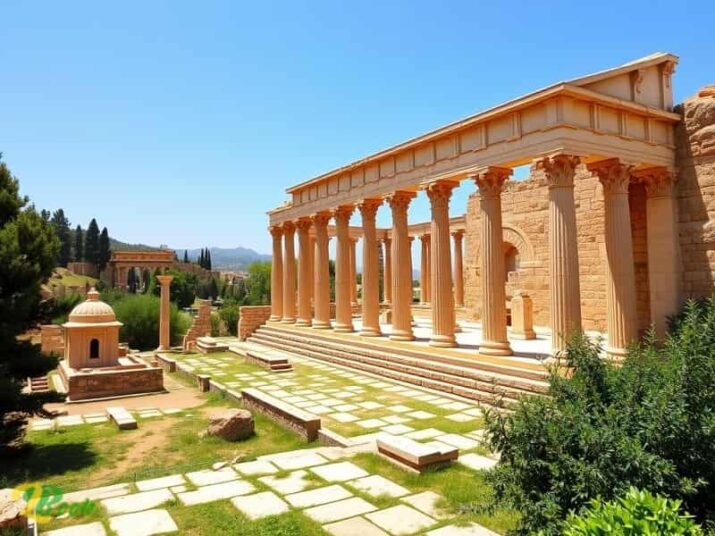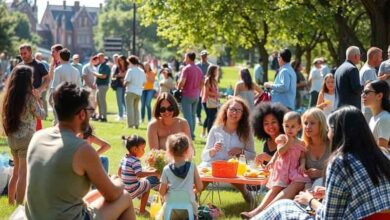Land of the Cedars: Rising from the Ashes to a Bright Future
Land of the Cedars: Rising from the Ashes to a Bright Future
Introduction: The Shock of Returning Home
When we return to our homeland after a long absence, we feel a mix of nostalgia and anxiety. Memories of childhood and beautiful places we used to play in come to mind—those streets that witnessed our laughter and dreams. However, the reality we face can be painful, revealing the scars of chaos and corruption.
The Land of Cedars, known for its natural beauty and cultural diversity, now suffers from internal conflicts and serious challenges. How can a land that holds such beauty turn into a battlefield of strife and corruption? In these lines, we will explore the challenges facing our homeland and seek ways to rebuild it, focusing on the importance of the individual as a fundamental entry point for this reconstruction.

Corruption: The Hidden Enemy
Financial and Administrative Corruption
Corruption is one of the most significant challenges facing our country. Public funds are wasted without oversight, used for personal gain instead of developing education, health care, and infrastructure. Administrative corruption reflects a lack of respect for citizens and their rights, leaving them feeling like victims of policies that do not serve their interests.
Financial scandals continue to unfold, leaving citizens feeling powerless against corrupt forces, leading to increased frustration and anxiety. In the absence of transparency, citizens lose faith in state institutions, resulting in a widespread sense of hopelessness about the future.
Judicial Corruption: The Lost Justice
The judiciary, considered the cornerstone of justice, suffers from immense pressures. Instead of being a refuge for the wronged, it has become part of the problem. Political influences on judicial decisions have led to widespread injustice, hindering any genuine attempts for true justice.
Reforming the judicial system requires significant efforts to ensure its independence and procedural transparency, as rebuilding trust between the public and the judiciary is essential. Citizens must feel that laws apply to everyone without exception, and that the corrupt are held accountable to ensure justice is achieved.
Social Corruption: The Impact on Relationships
Corruption is not limited to governmental institutions; it extends to social relationships. When corruption becomes commonplace, people begin to lose trust in one another. Human values deteriorate, and interactions become based on interests rather than principles.
This type of social corruption creates a negative environment that affects family and community relationships, widening the gap between individuals. Restoring trust among people requires collective efforts to promote human values and open communication, which helps in rebuilding the social fabric.
Party Domination: Control through Force
Political Parties and Power Monopoly
Political parties dominate the country’s affairs, exploiting sectarian divisions to achieve their interests. This hegemony hinders any attempts at reform, as parties seek to enhance their power instead of working for the nation. Political conflicts among these parties have led to the disintegration of social cohesion, making citizens feel like victims of partisan politics. There must be a call to enhance dialogue among political parties and activate their roles in serving the community, restoring trust between citizens and their leadership.
Violence: Fear in the Streets
Violence is on the rise in society, with weapons being used daily in the streets. The deteriorating security situation contributes to chaos and makes people live in fear and insecurity. Therefore, it is essential to rebuild security forces and police, and to strengthen the rule of law as a fundamental step towards restoring safety. Clear measures must be taken to combat crime and improve public safety, allowing citizens to regain their sense of security and peace of mind in their daily lives.
Political Culture: Towards Societal Awareness
The lack of political culture among many citizens exacerbates party hegemony. Political culture must be promoted through education and media, empowering individuals to understand their rights and duties. Community awareness of the importance of political participation can lead to real change in the system, allowing them to choose genuine representatives who reflect their aspirations. Enhancing political culture encourages constructive dialogue and strengthens the value of democracy, leading to a more stable and progressive society.

Chaos in the Streets: Traffic and Environmental Crisis
Deteriorating Infrastructure
The streets of the Land of Cedars suffer from poor maintenance, with potholes filling the main roads, making transportation difficult. The lack of a clear strategy for developing infrastructure exacerbates this issue, turning every day into a new challenge for citizens. The government must invest in road maintenance and improve public transportation, focusing on creating sustainable infrastructure that meets modern demands. Improving infrastructure is a necessary investment in the nation’s future, contributing to economic growth and enhancing quality of life.
Environmental Pollution: An Enemy to Health
Generators widely used in urban areas contribute to air pollution, negatively affecting residents’ health. Addressing this issue requires investments in alternative energy and sustainable solutions to reduce reliance on generators. Pollution is not just an environmental problem; it is a health issue that impacts the quality of life for citizens. This requires raising environmental awareness among residents and supporting initiatives aimed at preserving the environment, which contributes to improving air quality and the surrounding ecosystem.
Traffic Crisis: Daily Chaos
Cities are plagued by severe traffic congestion, with cars piling up on the streets. This chaos not only affects citizens’ time but is also a major cause of traffic accidents. The government must develop public transport and promote a culture of biking and walking, contributing to reduced congestion and improved quality of life. Enhancing public transport can alleviate traffic congestion and promote smoother movement, benefiting everyone.
The Individual: The Core of Reform and Nation-Building
Education as a Tool for Change
Education is the key to rebuilding the nation. We must prioritize education and work to develop curricula that enhance human and national values. Teaching new generations the importance of cooperation and tolerance will lead to a stronger community. Everyone should have access to quality education, regardless of their social background. Education is an investment in the future and requires support from all segments of society to achieve its goals.
Strengthening Community Participation
Community participation is an essential element of the reform process. Civil society organizations must be given the opportunity to contribute to reform efforts and oversight. An active community can be a powerful force in combating corruption and promoting transparency. By fostering interaction among citizens, a healthy environment that supports national values can be created. Empowering the community to participate in decision-making enhances a sense of responsibility and strengthens social cohesion.
Cultivating Human Values
Teaching human values begins at home and in schools. We must instill in children the importance of respect and tolerance while enhancing their sense of belonging to their country. A balanced personality is what builds a nation, and this can only be achieved through proper education and sound upbringing. Instilling ethical values in the hearts of new generations is a long-term investment in the future of the homeland, as it can lead to positive changes in behaviors and attitudes.
Supporting Youth: The Hope of the Future
Youth are the hope for the future, and they must be given the opportunity to express their opinions and participate in decision-making. Empowering youth through education and training can make a significant difference in society. Programs must be established to develop their skills and enhance their entrepreneurial spirit, enabling them to contribute to building their homeland. Supporting youth is a vital step toward achieving the desired change, as they represent a driving force for development and innovation.
Practical Recommendations for Solutions
- Institutional Reform: There is a need to restructure government institutions to enhance transparency and accountability, activating the role of oversight bodies. Effective communication channels between the government and citizens should be established.
- Enhancing Education: Develop educational programs that focus on human values and national belonging, improving education quality in remote areas. These programs should include teacher training and curriculum updates.
- Investing in Infrastructure: Focus on improving transport networks and public services for all citizens. Strategic long-term planning is essential to meet the needs of the population.
- Local Economic Development: Encourage small and medium enterprises to create job opportunities, providing financial and technical support for entrepreneurial ideas. Business incubators should be established to support new entrepreneurs.
- Strengthening the Rule of Law: Work on judicial independence and improving the performance of security forces while ensuring accountability for the corrupt. Enhancing the culture of law among citizens through awareness campaigns is essential.
- Community Awareness: Promote awareness of the importance of political participation and human rights through educational campaigns and media. All community sectors must collaborate to achieve this goal.

Conclusion: A Glimmer of Hope
The Land of Cedars needs comprehensive care to rebuild it anew. Hope exists, but it requires genuine efforts from all parties involved. We must work together to build a community that respects the individual and promotes national values. A nation is not built solely with bricks but with individuals who carry values and ethics.
If we can rebuild the individual, the Land of Cedars will flourish once more, becoming a place of hope and life. Collective action and cooperation among all are the foundation for achieving the desired change. Let us make the Land of Cedars a model of reform and progress, and together, let us build a future filled with hope and prosperity.
Related Posts
- Rejection in Our Time: Loss of Spiritual Values and Identity
- Sacrifice in Dark Times: The Importance of Human Values
- Life’s Depth: From Superficiality to True Meaning
- Return to Homeland: Rising from the Grips of Corruption
- Success Without Humanity: How Humanity Gets Lost in Fame
- Rebuilding Humanity in a World of Unknown Futures







